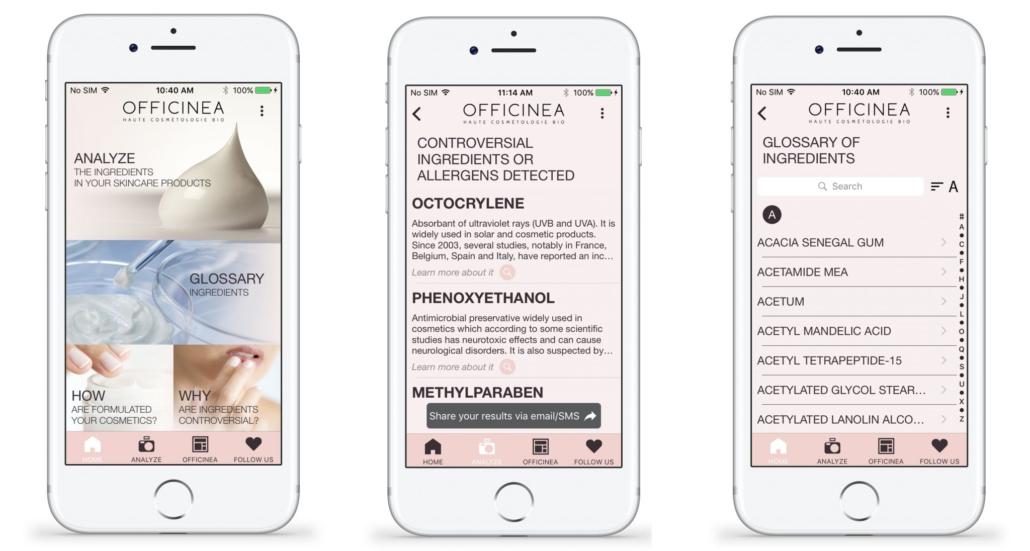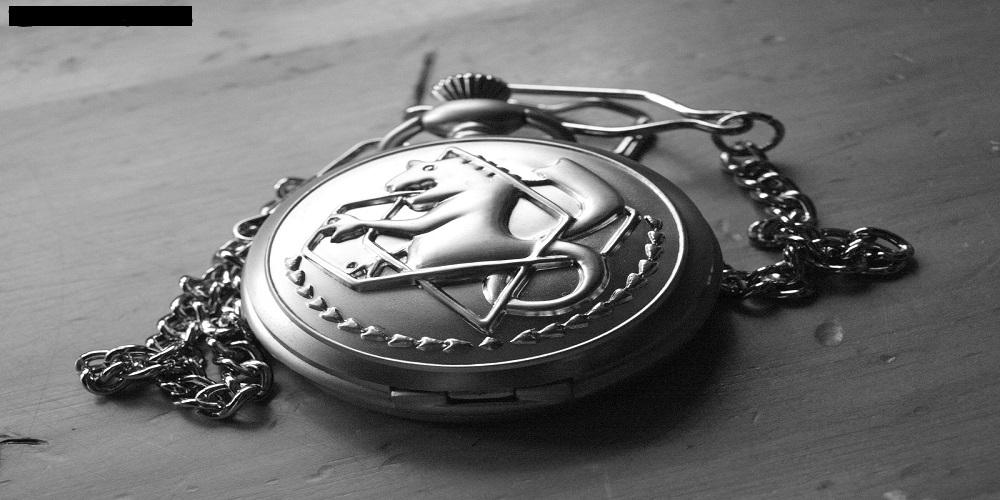Are cosmetic “apps” reliable?
They are rampaging! These mobile Apps are changing our habits as consumers. They are Yuka (also known as the carrot App') and El CoCo, two applications that, in just a few months, have become the favorites of users concerned about the quality of what they eat (that is, many of us , according to the latest study by Ingredion).
His verdicts are so fast that they seem like magic: with a simple scan of the barcode of a food (in Yuka's case), the mobile tells us if it is healthy or not. They also identify which of its components are potentially dangerous to health, which has made us flee in terror from sausages with a high level of E250, cheeses with too many polyphosphates or a bath gel with petrolatum. They even provide healthy alternatives to a product that is not.
How does it work?
The application is very easy to use. Simply scan the product barcode with your phone to instantly access the product sheet with composition details. Yuka then returns a score to the consumer: excellent = between 75 and 100, good = between 50 and 74, mediocre = between 25 and 49, and finally poor = <25. In an effort to make things more readable, the app also assigns a color code that runs from green to red. When the product is orange or red, it is possible to resort to similar products recommended by Yuka and that have a better composition.
Why are they liking it so much? Because they are easy to use and you can find out the composition of a product in a few seconds. The color coding also allows everyone, young and old, to understand the assessment. And finally, the alternatives it offers to a poorly valued product.
According to the App and common sense, we should avoid ultra-processed products and caloric products.
An average adult Spaniard consumes 36% of ultra-processed calories per day and these products represent 40 to 50% of the food supply in supermarkets.
Despite this spectacular level of penetration, there are not a few voices critical of the program. Perhaps the most notorious is that of Marian García, the nutritionist and doctor of Pharmacy behind the blog Boticaria García, who published an article titled “Three reasons not to use Yuka”.
Thus, the professional goes so far as to affirm that the App is chemophobic and unnecessarily alarms the population. "Yuka's goal is not to be alarmist," Bierschwale replies when asked about it. "Their mission is to improve the health of consumers by helping them decipher product labels so they can make the healthiest choices."
But in addition to food, this App analyzes cosmetic products and creams don't pass the Yuka test either. The App does not give good marks to cosmetics and dermatologists do not give the app a thumbs up. “From what I have been seeing, it is an App that echoes the alarmism that exists now with parabens, preservatives, etc.”, says Dr. Antonio Clemente Ruiz de Almirón, member of the board of directors of the Spanish Academy of Dermatology and Venereology (AEDV) .
"Any cosmetic product has many components and some in high doses can cause allergies, but they all pass exhaustive health controls," adds the dermatologist.

Yuka puts the red dot on components that in large quantities can be negative, but do not present problems in minimum doses. Then there is the myth of parabens : “In themselves they are not bad, but they are an allergenic substance and in some people they can cause a reaction”.
Despite what the experts consulted say, these applications that scan our shower gels and toothpastes have multiplied in recent months, although they do not always say the same thing as each other.
Of course for me it is a brilliant idea that I can not do without. At the supermarket or pharmacy, I'm ready to scan with Yuka to check the composition of my diet and with the Inci Beauty App to get an in-depth look at my bathroom cabinet. Micellar water, toothpaste, deodorant, shampoo... My shopping organization was perfectly well organized until Yuka arrived, launched in January 2016 and now has almost six million downloads.
I must admit I've become addicted to scanning and couldn't help but test Yuka for my cosmetics. But I think it's gotten out of hand since I've been scanning product twice lately, at Inci Beauty first and Yuka later. Bad idea! While the two apps often agree, it's not uncommon for their opinions to completely contradict each other. So prone I didn't know what deodorant or shower oil to use. I was lost in the cream universe.
Launched in November 2017, Inci Beauty, is more confidential than Yuka and totals just over 200,000 downloads, but has quickly established itself because it is smarter and more complete than the others. And Yuka being the Rolls of food scans, she couldn't pass up the cosmetics. And these are the reasons for my choice and the ones that have completely confused my brain.
Both work more or less the same. A product gets a score of 100 in Yuka or 20 in Inci Beauty. The score is calculated based on the ingredients classified in four categories. From red to green through orange and yellow. The color codes are the same for both apps, their titles are different. “High risk, moderate risk, low risk and no risk” for the Yuka nomenclature. “Controversial / risky, poor, satisfying and good” by Inci Beauty.
The first component that clearly illustrates their differences: titanium dioxide, sometimes used as a colorant in cosmetics. I scanned my 3 year old daughter's toothpaste with Inci Beauty. Results: 11.9 / 20. Not great, but it holds its own.
Passed a second time on the grill, this toothpaste becomes a veritable poison for Yuka. I poison my daughter every day with this toothpaste which makes the terrible 14/100 mark for carrot application. In question? Titanium dioxide! The same that Inci Beauty considered "satisfactory". But then, who tells the truth? According to Yuka, titanium dioxide may be present in the form of nanoparticles that can cross the intestinal barrier and enter the blood. “They are suspected of having endocrine disrupting effects, causing immune system disorders and increasing cancer risk.” A highly toxic product, according to this description.
The INCI list is the identity card of a cosmetic product, since its ingredients are listed in this INCI list, the international nomenclature of cosmetic ingredients. Since 1999, this must be clearly visible on the packaging of cosmetic products. At the top of the list is the ingredient present in the highest quantity in the product. The others are then placed in descending order. The regulations establish that when we drop below the 1% mark, the manufacturer no longer has the obligation to respect the order of concentration. These products reach the bottom of the INCI list.
“To analyze a cosmetic product, it is above all necessary to take into account the place of an ingredient in the list of components”, explains Laurence Coiffard, doctor of Pharmacy and creator of the blog “Regards sur nos cosmetics. “When we come to perfume, we know that we are around 1% and less concentration. If an ingredient is not excellent, but it is, not an impurity, but almost, then clearly the product will not harm the skin, there is no need to write it down.”
“You have to look at each ingredient in context. Concentration is important! And a product does not have the same lightening and non-lightening impact”, insists Jean-Christophe Janicot, founder of Inci Beauty, which classifies products from the most concentrated to the least concentrated.
Take Bioderma's flagship product, Bioderma H2O micellar water, as an example. Inci Beauty only attributes an 8.7 / 20 to this “makeup removal micellar solution”. In particular, cetrimonium bromide, which she considers "not terrible." Bioderma H2O micellar water is rated excellent by Yuka with a score of 86/100!
But Laurence Coiffard can also side with Yuka, like with this Rose Petal Micellar Foam Water from Nuxe. The product, which contains sodium lauryl sulfate, has a poor rating for Yuka, only scoring 41/100. For Inci Beauty, it gets a nice score of 12.8 / 20 and its component, sodium lauryl sulfate, is classified as “satisfactory”. For the founder of "Regard sur nos cosmetics", sodium lauryl sulfate is "an extremely irritating surfactant, which should disappear from the cosmetic industry". This time it is Yuka who wins.
Let's continue with my new hobby "scanner". As Inci Beauty is more restricted there are fewer brands, for example, the Gold antiage Peel Off Mask from Q77+ www.q77plus.com has a score of 76/100 Excellent in Yuka but is not recognized in Inci Beauty. In Yuka they tell us that it has 30 risk-free ingredients such as gold, and in which it puts limited risk, with Titanium dioxide when reading the details we verify that "titanium dioxide is above all problematic when it is present in the form of nanoparticles, case which is none of our business”, then you should not consider it in this case. So just like contracts, folks, don't forget to read Yuka's fine print.
Or the Vitamin C ampoules from Laboratorios Babé, www.laboratoriosbabe.com, which last year won a prestigious beauty award from an important magazine in our country, achieved almost total success with Yuka with a 93/100 score, but in INCI Beauty does not recognize the name of the product and gives it a score of 9.5/20 considering 6 ingredients as "not terrible", 11 "good" and two "satisfactory".
Laurence Coiffard does not defend one app over another. “One application is more interesting than the other just on a case-by-case basis. This shows that both do not use the same criteria and therefore we are faced with different conclusions. It's really not easy for the consumer to follow."
He also says that these apps navigate fears by demonizing certain components. However, do you have confidence in all the cosmetic products that have been authorized on the market? "Of course not! It is imperative to remove alcohol, UV filters and formalin. If we purify the products of all this, we would greatly improve the situation, both for health and for the environment. But because of that, nothing moves! "
So what do you recommend buying when you're alone in the cosmetics department? "Unfortunately, there is no foolproof rule to avoid making mistakes when one is very new to the fields of health and chemistry."
Therefore, I will continue to scan my products, for lack of anything better. I'll pick just one app though, I promise. Once and for all. And I strongly recommend that you do the same for your health, mental health of course!









1595